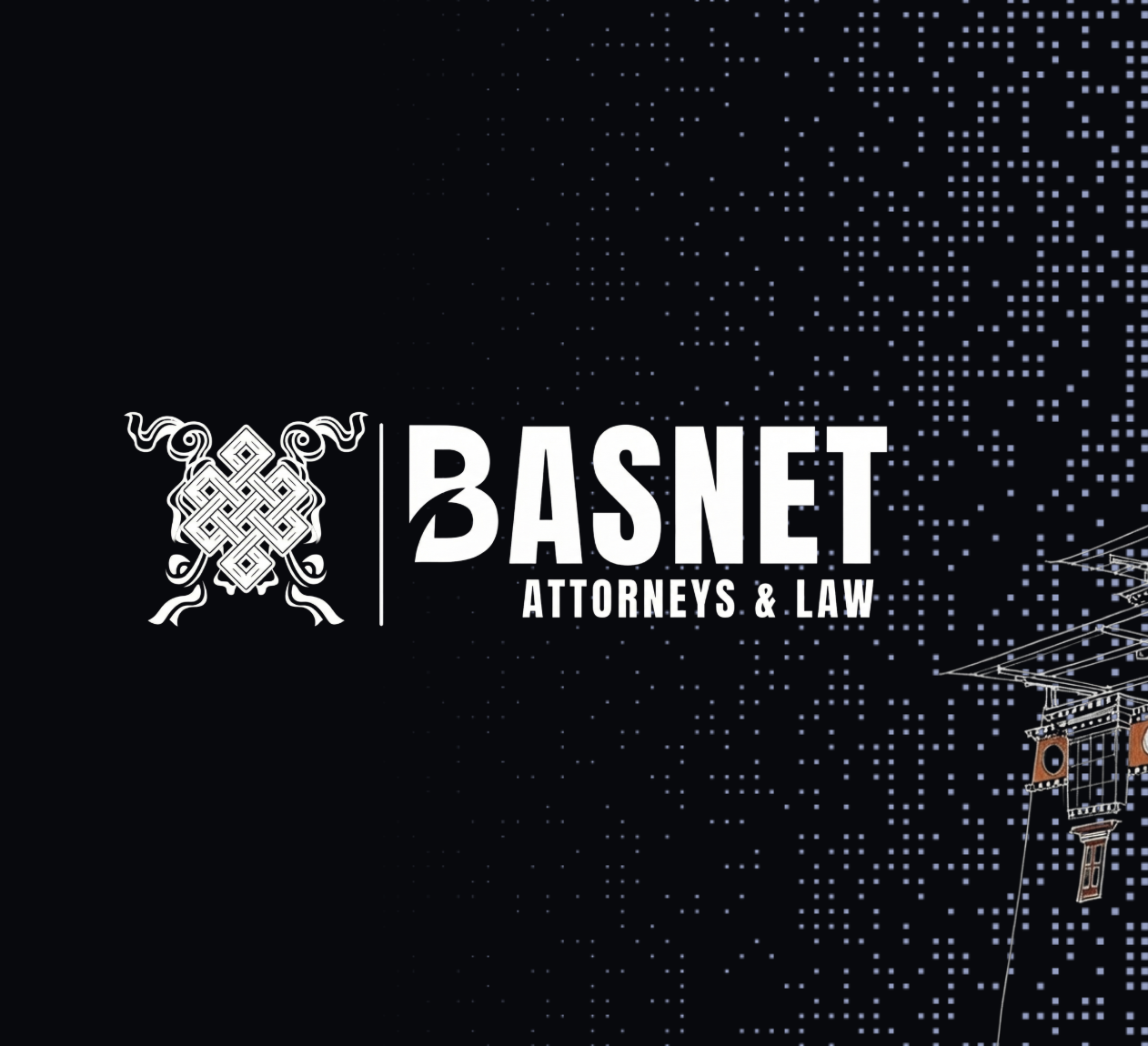Best Private Equity Lawyers in Thimphu
Share your needs with us, get contacted by law firms.
Free. Takes 2 min.
List of the best lawyers in Thimphu, Bhutan

Basnet Attorneys and Law - A Premier law Firm in Bhutan
15 minutes Free ConsultationAbout Private Equity Law in Thimphu, Bhutan
Private equity refers to investment funds, generally organized as limited partnerships, that acquire private companies or invest in privately held businesses. In Thimphu, Bhutan, private equity is an emerging sector, shaped by the country's unique regulatory environment and efforts to attract foreign direct investment. Unlike many larger economies, Bhutan’s private equity market is developing, guided by domestic policies to encourage responsible and sustainable business growth while maintaining strict regulatory standards.
Practices related to private equity in Thimphu include investment structuring, regulatory compliance, due diligence, negotiation of shareholder agreements, and adherence to foreign investment policies. Since private equity often influences local development and cross-border investments, it involves an intricate balance between business objectives and regulatory frameworks overseen by government agencies.
Why You May Need a Lawyer
Navigating private equity transactions in Thimphu presents several legal complexities. Whether you are a business owner seeking capital, an investor planning to acquire a stake in a local enterprise, or a fund manager structuring deals, legal assistance is crucial. Here are common scenarios where a lawyer’s help is recommended:
- Drafting or reviewing investment agreements and shareholder contracts
- Compliance with the Companies Act of Bhutan and Industrial Policies
- Conducting due diligence on target companies
- Negotiating terms of investment or exit strategies
- Addressing cross-border transaction regulations and permissions
- Navigating approvals from regulatory bodies such as the Ministry of Economic Affairs
- Ensuring intellectual property rights and data protection during investments
- Resolving disputes between investors and business owners
Given the evolving legal landscape and regulatory controls, professional legal advice can help avoid costly errors and ensure compliance.
Local Laws Overview
Private equity in Thimphu operates under several key regulations and policies. The major legal frameworks include the Companies Act of Bhutan, the Foreign Direct Investment (FDI) Policy, Taxation Laws, and sector-specific regulations. Some pertinent aspects are:
- Regulatory Approvals: All private equity deals involving foreign investment require clearance from relevant government agencies, most notably the Ministry of Economic Affairs.
- Ownership Restrictions: Some sectors impose restrictions or caps on foreign equity participation to safeguard national interests.
- Due Diligence Requirements: Comprehensive disclosures and documentation are mandated for investors and target companies.
- Reporting Obligations: Investors must provide periodic financial and investment reports to Bhutanese regulators.
- Tax Implications: There are specific tax provisions for capital gains, dividends, and repatriation of profits by foreign investors.
- Exit Procedures: The law outlines guidelines for private equity exits, including buybacks, share transfers, and public offerings.
It is also important to recognize that Bhutan maintains a strong focus on Gross National Happiness, influencing regulations on sustainability and social responsibility for private investments.
Frequently Asked Questions
What is private equity and how does it work in Bhutan?
Private equity involves investing in private businesses to gain ownership stakes and drive business growth. In Bhutan, it typically means investing in local companies through negotiated agreements, under supervision of local laws.
Are foreign investors allowed to participate in private equity in Thimphu?
Yes, foreign investors can participate, but their investments are subject to FDI policies, regulatory approvals, and sectoral restrictions.
What is the process for setting up a private equity fund in Bhutan?
You must register a legal entity, obtain relevant permissions from government bodies, and comply with investment fund regulations and the Companies Act.
Do private equity transactions require government approval?
Yes. Most private equity transactions, especially with foreign participation, need approvals from authorities such as the Ministry of Economic Affairs.
What due diligence is required before making a private equity investment?
Legal, financial, and operational due diligence is necessary. This includes reviewing company records, compliance status, assets, liabilities, and potential legal issues.
How are profits from private equity investments taxed?
Profits are subject to Bhutan's taxation laws, including taxes on dividends and capital gains. Special tax considerations may apply to foreign investors.
Are there sector restrictions for private equity investments?
Yes. Certain sectors, like national security or natural resources, may restrict or limit foreign ownership and private equity investments.
What legal protections are available to private equity investors?
Investors are protected through legally enforceable contracts, shareholder agreements, and the rights outlined under the Companies Act of Bhutan.
Can private equity investors exit the investment freely?
Exit is possible but subject to legal procedures such as share buybacks, transfers, and regulatory consent depending on the investment structure and sector.
What should I do if a dispute arises in a private equity deal?
Seek legal assistance immediately. Disputes can often be resolved through negotiation, mediation, or, if needed, court proceedings under Bhutanese law.
Additional Resources
If you need further information or support on private equity in Thimphu, Bhutan, consider the following resources:
- Ministry of Economic Affairs - Responsible for investment approvals and regulatory guidelines.
- Bhutan Chamber of Commerce and Industry - Offers networking, business advice, and investment-related support.
- Royal Monetary Authority of Bhutan - Regulates financial and capital markets, including foreign investments.
- Legal Professionals - Local law firms with expertise in corporate law, mergers, acquisitions, and investment compliance.
Next Steps
If you are considering a private equity venture in Thimphu, Bhutan, here’s how to proceed:
- Identify your investment or business goals and determine the appropriate legal structure.
- Consult a local lawyer with expertise in corporate and investment law to assess compliance requirements.
- Prepare all necessary documentation including agreements, due diligence reports, and business plans for submission to regulatory bodies.
- Obtain the stipulated approvals from the Ministry of Economic Affairs and, where applicable, other oversight agencies.
- Maintain regular communication with your legal counsel to stay updated on regulatory changes and reporting obligations.
Seeking timely professional advice ensures that your private equity activities in Thimphu, Bhutan, remain legally compliant and secure. A knowledgeable lawyer can safeguard your interests, help mitigate risks, and facilitate successful investment outcomes.
Lawzana helps you find the best lawyers and law firms in Thimphu through a curated and pre-screened list of qualified legal professionals. Our platform offers rankings and detailed profiles of attorneys and law firms, allowing you to compare based on practice areas, including Private Equity, experience, and client feedback.
Each profile includes a description of the firm's areas of practice, client reviews, team members and partners, year of establishment, spoken languages, office locations, contact information, social media presence, and any published articles or resources. Most firms on our platform speak English and are experienced in both local and international legal matters.
Get a quote from top-rated law firms in Thimphu, Bhutan — quickly, securely, and without unnecessary hassle.
Disclaimer:
The information provided on this page is for general informational purposes only and does not constitute legal advice. While we strive to ensure the accuracy and relevance of the content, legal information may change over time, and interpretations of the law can vary. You should always consult with a qualified legal professional for advice specific to your situation.
We disclaim all liability for actions taken or not taken based on the content of this page. If you believe any information is incorrect or outdated, please contact us, and we will review and update it where appropriate.










